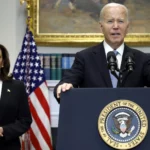I was cradling my newborn son one night in November 2016 when I suddenly began to sob. Something had dawned on me that filled me with fear.
I was the mother of a Black son in America.
I was born in Kenya and moved to the US after high school to attend college. I have long felt a conflict between my race and my nationality.
In some ways, I didn’t know I was Black until I came to the US.
That night, as I held my son, Liam, and listened to TV pundits debate what the presidential election results meant for people of color, I felt frightened for his future.
I knew that no matter how he chose to define himself as the son of two Kenyan immigrants, he would be seen first and foremost as a Black man. And I was well aware of the prejudices that come with that label.
Despite living in the US for years and covering incidents of racism as a journalist, I wasn’t sure I was equipped to help him navigate life in a country where race is such a hot-button issue.
With my son’s birth, the dynamic of my life in America had changed. I could no longer observe issues of race as a bystander from another country who wasn’t sure where she fit in the conversation. I was the mother of a Kenyan American son, a Black son.
To keep him safe, I knew I had to evolve. Little did I know my son would show me a new perspective on my adopted country.
Until I Came to the US, I Never Thought Much about Race
For the first half of my life, I had never worried about my Blackness or looked at my life through the lens of race.
In Kenya, where more than 90% of the population is Black, race was never a factor in how we viewed the world.
In Kenya, there are tensions around colorism, class and different ethnicities. But except for South Africa, issues around Black and White identity are non-existent in a lot of African countries, said Karsonya Wise Whitehead, associate professor of African and African American Studies at Loyola University.
“When I was in Kenya, the guy who took my bag (at the airport) was Black. The guy who flew the plane was Black. The president was Black,” said Whitehead, who’s traveled to many African countries. “As a Black person from an African country, you haven’t seen the long history of oppression, the long history of social injustice that those of us who were born here, who are descendants of enslaved people, have seen.”
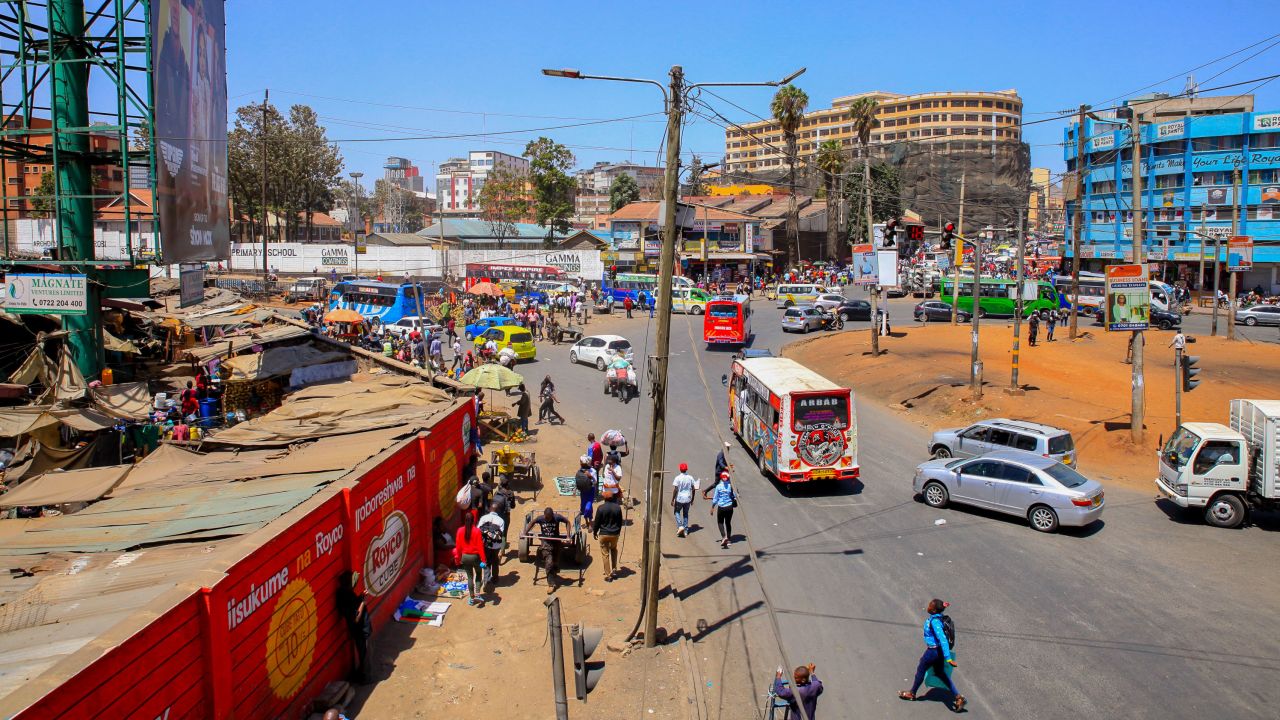
The central business district of Nairobi, Kenya’s capital and largest city.Donwilson Odhiambo/SOPA Images/LightRocket/Getty Images
I came to the US roughly two decades ago to attend Grambling State University, a historically Black school in northern Louisiana. I remained at Grambling for both my undergraduate and graduate studies, which shielded me from racial injustices for the first few years of my American life.
But that doesn’t mean there were no racial tensions. One night in February, while we were working on a joint newspaper project with White journalism students from a nearby university, a debate erupted over the need for Black History Month. I watched it silently from the sidelines, not quite sure what to do.
In the United States, I’ve experienced more instances of ignorance about Africa than overt racism. People have asked me all sorts of questions: How did I get here when there are no planes in Africa? Did we have wild animals roaming the streets? Do I run marathons like the elite Kenyan runners?
Most of the discrimination I faced was not about race, directly, but my status as an immigrant. After I graduated from college with a journalism degree and applied for a copy-editing internship at a newspaper in Oregon, the recruiter called to tell me they’d chosen another candidate.
In a moment of candor, he revealed that even though I’d passed an editing test with flying colors, their main concern was that as an immigrant from a country considered non-English speaking, I would struggle in a job where American English takes center stage.
My first newsroom job was as a copy editor at a small newspaper in Monroe, Louisiana. I took note of the lack of diversity in that and every other newsroom I walked into. But I was mostly busy trying to prove myself, trying to convince the reporter who looked at me quizzically when I questioned a detail in her story that despite my accent, I was indeed fluent in English, and I could edit as well as my American peers.
I was oblivious to racial microaggressions. As an immigrant in a new job, I was too busy fighting to survive. And as a child of two worlds, there was so much to learn, and unlearn.
For example, as someone who grew up in a former British colony, I had to work on replacing my Britishisms to survive in a US newsroom. Open the trunk of the car, not the boot. Grab some cookies, not biscuits. Order some French fries, not chips.
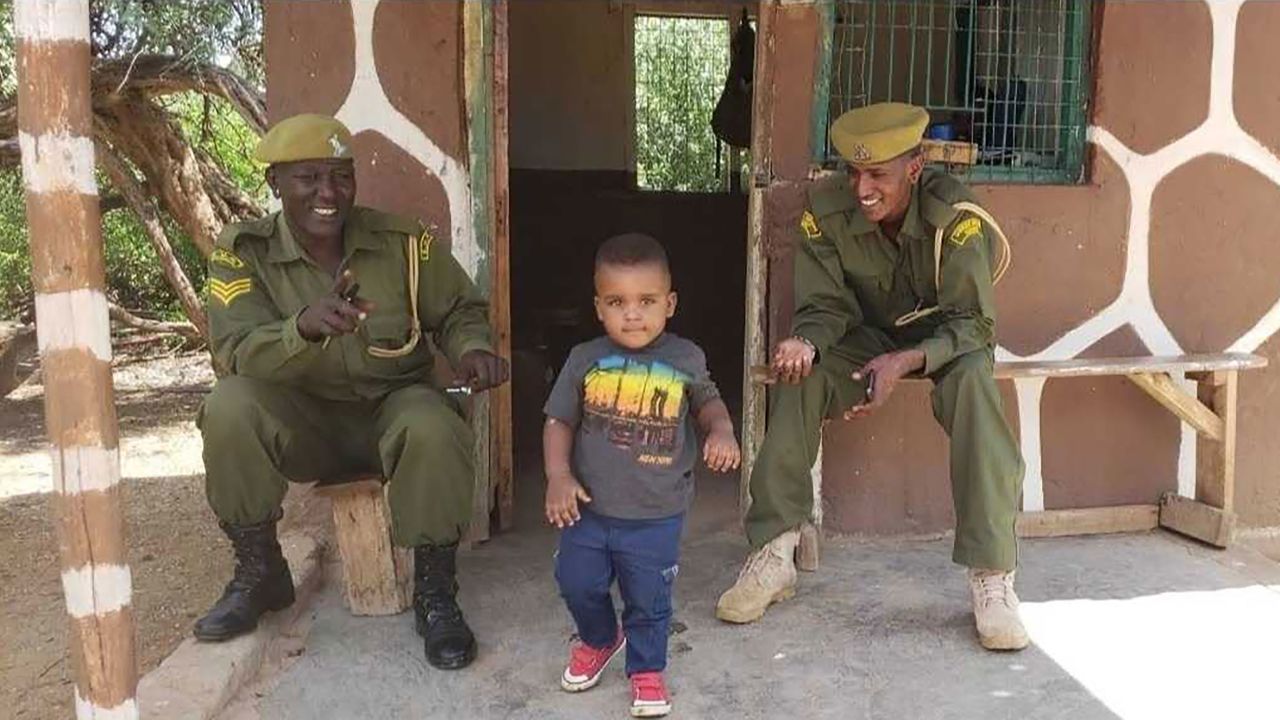
Faith Karimi’s son Liam visits with wildlife park rangers at the Samburu National Reserve in Kenya.Faith Karimi/CNN
In Kenya, when I was growing up, looking someone in the eye was viewed as defiance. In the United States, when you don’t look someone in the eye, it’s considered a sign of impoliteness, or deceit.
Back in Kenya, challenging the opinion of someone older than you was considered disrespectful, something my husband and I had to unlearn after moving to the US.
But our son has never lived in Kenya, so he does not share our cultural baggage and cannot relate to our lives before the US.
He looks at people straight in the eye and says no to us when he wants to. It’s a reminder that while our lives were shaped by our backgrounds as immigrants, his will be shaped by his experiences as a Black man in the US. He will face exclusively American problems.
To raise a Black son, my husband and I realized we needed to arm ourselves with new knowledge. We needed to worry less about nuances of nationality and culture, and focus more on issues of race.
Black Immigrants Like Me are Part of a Growing Demographic
We share these challenges with many other Black immigrants, a growing demographic in the US.
More than 4.6 million Black immigrants live in the US, a jump from the roughly 800,000 in 1980, according to a Pew study. This parallels the overall rise in immigration to the US over the past half century.
While most Black immigrants come from Caribbean nations like Jamaica and Haiti, Africa has accounted for the fastest growth in the Black immigrant population since 2000, the Pew study found.
Many Black immigrants of our era arrived here with little knowledge of African American culture or history. Growing up in Kenya, my dad was a big fan of Kenny Rogers and Dolly Parton, and blared country music on his little red cassette tape player on weekends. State-run TV aired Indian movies and Mexican telenovelas.
If we wanted to learn about Black culture in America, we had to seek it out by renting VHS tapes of “The Fresh Prince of Bel-Air,” “Martin,” “The Cosby Show” and BET music videos.
As a high school student with no money, I gravitated to the free syndicated shows on TV. My siblings and I could perform complicated Bollywood dance moves and recite Mexican soap opera scenes faster than we could explain the Black experience in America.
Everything I knew about the US civil rights movement, I learned in college and thereafter. A history class in my freshman year introduced me to the centuries of slavery and inequality in the US. I remember being shocked to hear about this, because in Kenya, we had viewed the US as a model of human rights and democracy.
I marveled at the courage of Martin Luther King Jr., Rosa Parks, Harriet Tubman and other Black historical figures. And I was horrified when I discovered the symbolism behind the Confederate flags I saw everywhere while driving around rural Louisiana.
But I learned everything with a sense of detachment, because I was too busy trying to build a new life.
My Son has Taught Me to Dig Deeper on Issues of Race
I spent the years after my 2006 graduation working at newspapers in Louisiana, California and Baltimore before moving to Atlanta. I noted the racial tensions and the lack of diversity in most professional spaces I was in, but as an immigrant, I still looked at it from a bystander’s perspective.
Then I had a son, and my thinking shifted.
My husband and I soon realized we were raising Liam to understand his Kenyan background but neglecting his Americanness. How would we teach him to appreciate his Kenyan roots but also grasp the complexities around racial issues in this country?
My son reminded me of this delicate balance when he overheard my sister and I having “The Talk” with his older cousin.
As Black Americans know too well, The Talk is the advice Black parents give their children about how to behave when encountering police.
If police pull you over, put your hands on the steering wheel where an officer can see them. Ask before you move your hands – even to get a wallet or your driver’s license. Don’t make any sudden moves. If you’re wearing a hoodie, don’t cover your head while walking down the street. Don’t put your hands in your pockets around an officer or in a store.
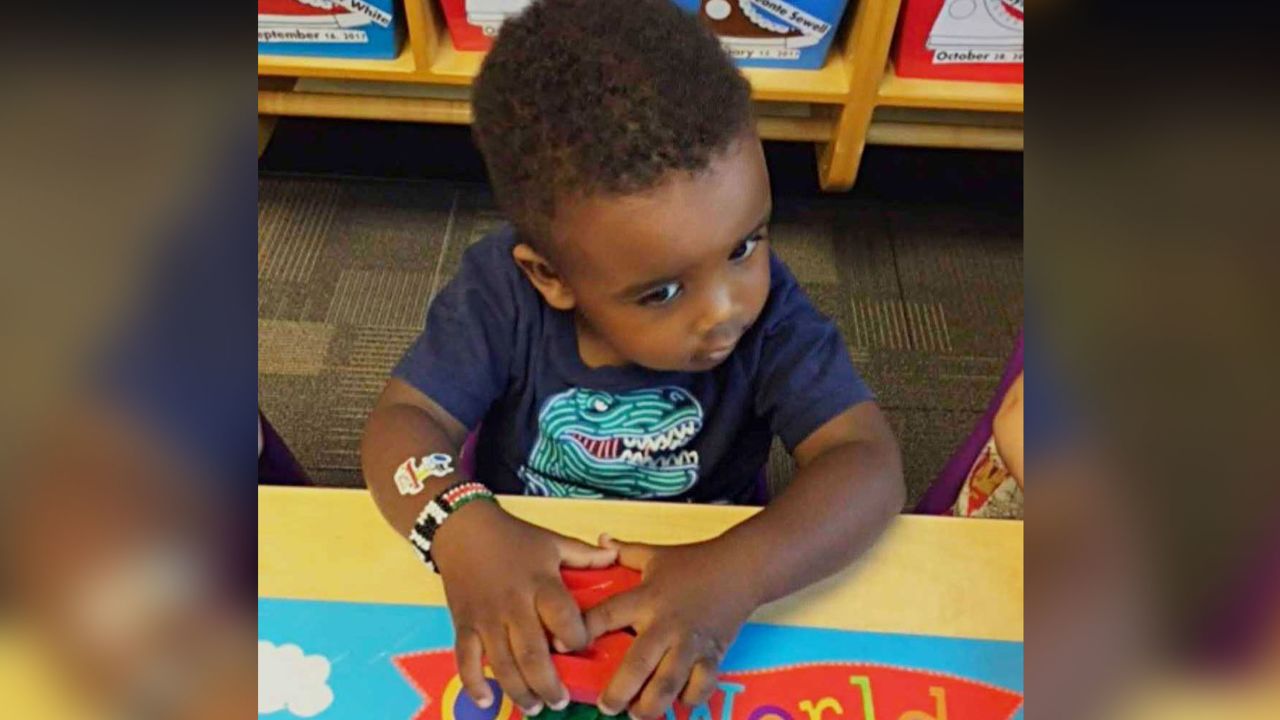
Liam wearing a bracelet showing the colors of the flag of Kenya, where his parents are from.Faith Karimi/CNN
“Do you have to do the same police stuff in Kenya, too?” my son asked.
I responded haltingly, thinking about every word. We thought he was still too young for The Talk.
“Um, no, in Kenya it’s different. You don’t have to do that.”
That was followed by every 6-year-old’s favorite word: Why?
Both countries have their own unique histories and differences, I told him, so they have their own ways of doing things.
He still looked puzzled. It’s hard to explain this to a 6-year-old without demonizing the police, so we let it go and will revisit the subject when he’s a little older and can find some balance.
But we are gradually addressing topics of race with him. We’ve told him that people come in all shades, and they are all beautiful. We’re taking him to African American historical sites, such as Martin Luther King’s boyhood home here in Atlanta.
And we read aloud to him from a book he got for his 6th birthday called, “Little Legends: Exceptional Men in Black History,” which features brief profiles of pioneering American figures such as Frederick Douglass and Thurgood Marshall. Its introduction says, “Whoever you are, there is a story for you in the pages that follow.”
I’m Educating Myself so I can Feel Empowered to Teach My Son
In October 2016, when we became parents, the heartbreaking stories of Black men killed by police or racist vigilantes took on a sudden urgency.
After the death last month of Irvo Otieno, a Kenyan American who died in police custody in Virginia, my son overheard me talking to Otieno’s mother by phone. As soon as I hung up, Liam asked, “why did they kill him? ”
I didn’t know how to answer that.
News headlines are a reminder that young Black men – even Black children – face constant threats in this country.
Two years before our son was born, 12-year-old Tamir Rice was shot and killed in Ohio by police who found him playing with a toy gun. And two years before that, 17-year-old Trayvon Martin was shot and killed by a neighborhood watch captain in Florida.
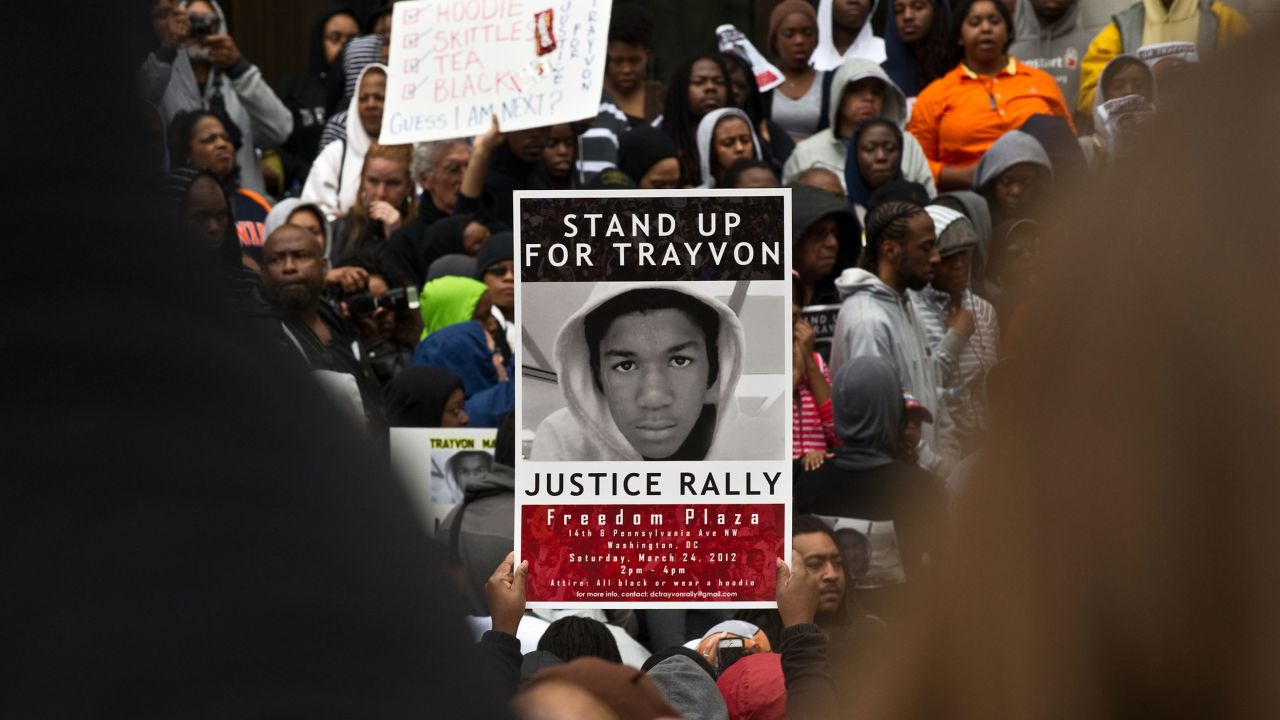
Protesters demand justice for Trayvon Martin, an unarmed Black teenager shot to death in Florida in 2012 by a White member of a neighborhood watch group.Nicholas Kamm/AFP/Getty Images
Conversations with fellow mothers from other African countries made me realize I’m not alone in my fears. A lot of them give their sons the talk on how to deal with police encounters. It’s a hard talk, but it’s necessary. Some parents give it again and again to remind their kids that despite their nationalities, they will be seen as Black first.
After years of shying away from discussing race issues, I’m having those conversations more openly now with friends of all races, nationalities and backgrounds. I’m educating myself so I can feel empowered to answer my son’s questions.
Abdullahi Boru Halakhe, an expert on East and Southern Africa, says it’s not unusual for immigrants from the continent to avoid race issues at first for several reasons.
“Their experiences with racism are limited – especially on a personal level,” said Halakhe, a senior advocate at Refugees International. “Additionally, most arrive via school or work. As a result, they put their heads down and focus … Many are in the rat race to join the job market, or go back to their home countries. There is a gulf in knowledge and understanding, especially the nuances and personal experiences.”
But Halakhe believes it’s crucial for African immigrants to be a part of the conversation on race.
“When you walk on the streets, there’s not distinguishing marker to a racist,” he said. “As people from the African continent, when we arrive on these shores, we have a responsibility to learn and engage on racism. The historical depth of linkage between Africa and African Americans is long. African American causes are our causes.”
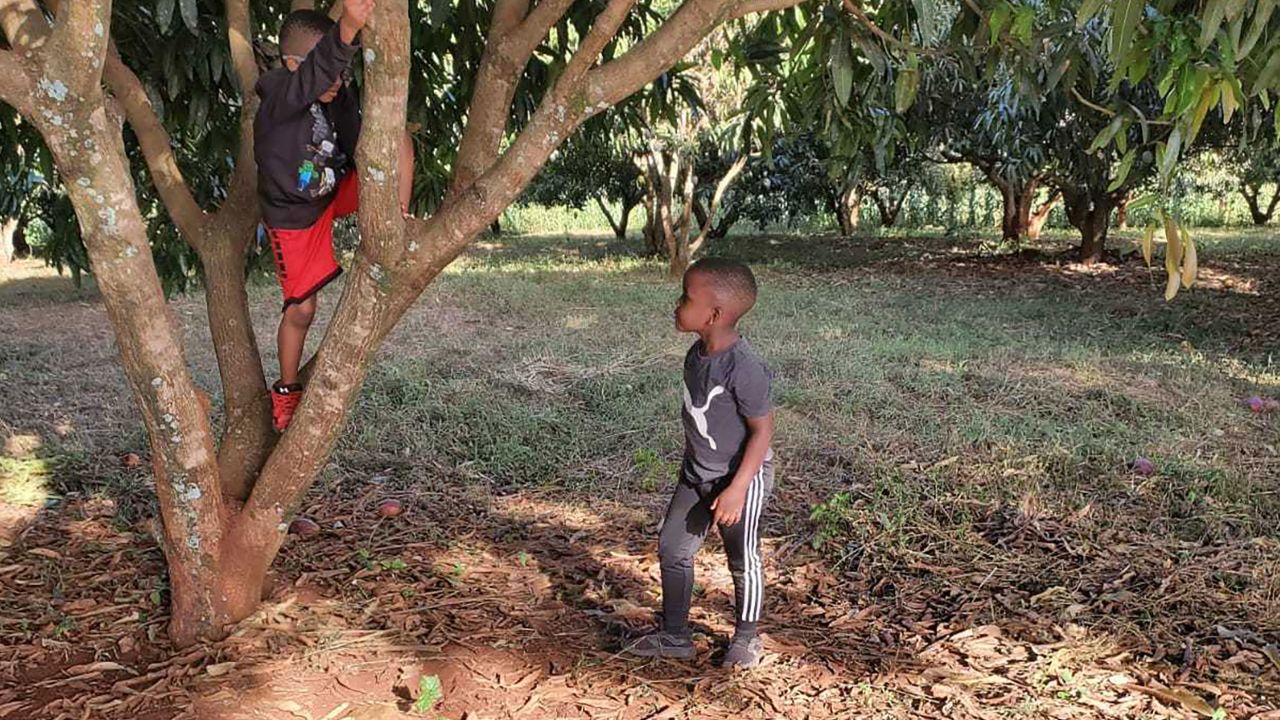
Liam, right, playing on his grandfather’s farm in Kenya.Faith Karimi/CNN
I’ve now spent more of my life in the US than in Kenya. Some days, I feel more American than Kenyan. Other days, I feel like I’m straddling two worlds and will never fully belong to one or the other.
But our son is quick to correct us every time my husband or I refer to him as a Kenyan. “Kenyan American,” he says.
He loves chasing after goats at his grandfather’s farm in Kenya and is a big fan of African soccer stars in the English premier league. But while he’s learned to celebrate both sides of his culture, he identifies with his American life more.
He prefers mac and cheese to Kenyan food, loves American sports and fire trucks, and always reminds us to leave a tip in restaurants in Kenya, where tipping is not part of the culture.
His clarity on where he belongs has forced me to confront both the good and the bad of living in the US.
I’m no longer an immigrant who is unsure whether to join conversations about race. I’m an American, and the proud mother of a Black son.
Source : CNN






